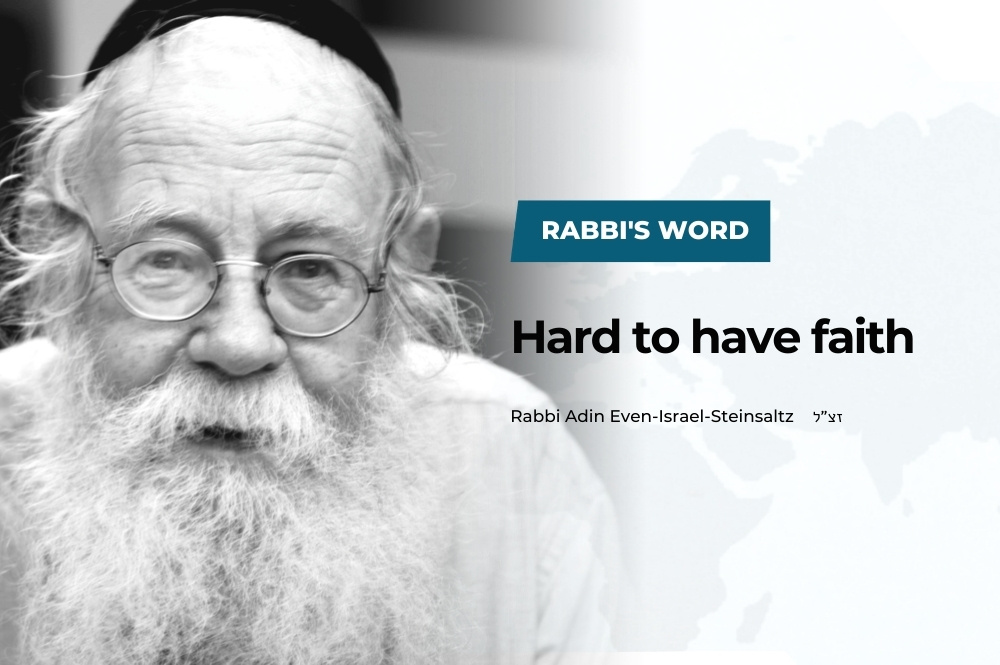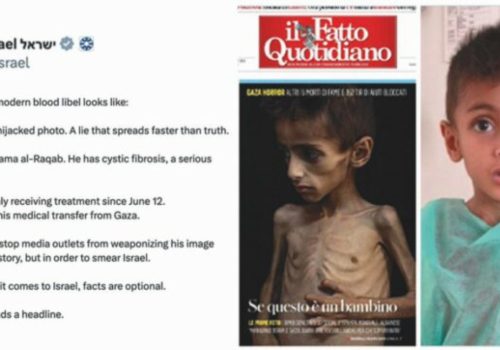
We continue cooperation with the institute of Rabbi Adin Even-Israel Steinsaltz and publish specially prepared material for the communities of the EAJC members. We publish this article after the death of Rabbi Steinsaltz, one of the greatest philosophers of our generation, a scientist and a Hasid. Let his memory be blessed.
Many people think that true faith is unattainable in our day. “Perhaps it was possible once, in the small Jewish towns of Poland, in the ghettos of Morocco, in the immigrant neighborhoods in the far corners of the world. But nowadays, who can be a true believer?”
The story is told that when King Solomon, in his wisdom, set down in his book of proverbs: “A simple person will believe anything”( Proverbs 14:15), all the fools in the world became very agitated. They convened a grand World Congress to deal with a pressing issue: Until Solomon revealed that “a simple person will believe anything,” it was impossible to discern the wise person from the fool, and the fools could escape the attention of others. But now what was to be done? The fools concluded that in order to avoid detention, they would do just the opposite. From now on, they must not believe in anything. And, indeed, that is the practice of fools to this very day….
When people, simple or scholarly, speak of the inability to have faith in our day, of the absurdity of faith, one is tempted to ask them: “Were you perhaps a participant in that Congress?”
Of course, the way to faith is not an easy one. It is not easy for a person who grew up in a “religious” home and not for one who grew up in a non-religious environment. The way of faith is a “long shorter” way; it is not a wide highway, traveled in the same way by all, but rather a narrow and winding path, personal and private.
The words of one tzaddik who spoke on this matter are simple and profound. On the words of the text “For I know that God is great” (Psalms, 135:5), he commented, “For I know – I alone know, and no other person can know like me( Sihot ha-Ran, 1). Another person may know more than I do, or in a deeper, broader or more complex manner, but knowledge of G-d is ultimately a private, personal experience that cannot be communicated.
It is possible to recount to another person what you ate through all sorts of descriptions and explanations, but it is impossible to convey the taste. Taste can only be perceived in one way – through actual experience. This is the meaning of the verse, “Taste and see that G-d is good” (Psalms, 34:9) – taste Him for yourselves!
Where can faith be found? Neither in heaven nor beyond the sea. It is very close, “in your mouth and in your heart” (Deuteronomy 30:14). For the truth is – and this is confirmed by theology and by personal experience – that everyone utters many words of faith and trust, only that frequently a person does not give an accounting to himself of what he utters with his mouth, and he cannot discern what his heart truly believes. In every ordinary statement such as “Never mind, it will be all right,” there is a true expression of faith. The comforting words spoken to a crying child, the awareness that somehow it is possible to get through life despite all the obstacles – these and the like are expressions of faith.
There are people who deny God’s existence and yet believe with all their heart in the “eternity of Israel.” There are people who are unwilling to accept anything that is part of the religion, of the tradition, of the heritage of our ancestors, and yet they stand and fight for things they think are good and right. They may be intellectual or simple people, they may have lost their way or they may be on course, and they have a wealth of true faith, faith that is found “in their mouths and in their hearts,” only that there are hindrances and obstacles that induce them to think they have no share in any of the above. They think that true religious faith is found somewhere far away in the high heavens, inaccessible to them, and so they do not search in the closest place, they do not nurture and develop the kernel that is found in their own selves.
One of the meanings of the term emunah (faith) is related to the word omen, one who raises and nurtures an infant. The seedling of faith must be tended. This authentic experience should be developed, should be given room to grow, should be given the possibility of finding expression. One should stop being afraid of oneself, stop worrying about the approval of the congress of fools. One should find and nurture the thing that is so close, which needs only “to be done,” to be carried out, actualized.

